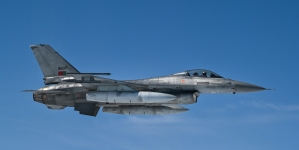-
Putin Smells Blood as Ukraine Faces Growing Calls to Negotiate - January 2, 2024
-
A portion of Mulholland Drive, damaged by mudslides in winter storms, reopens - May 26, 2024
-
‘Maybe You Don’t Want to Win’ - May 26, 2024
-
Donald Trump Putting Law Enforcement in Danger: Attorney - May 25, 2024
-
Avoid the waters of these 5 L.A. County beaches this holiday weekend, public health officials say - May 25, 2024
-
Bawdy Comedy ‘Anora’ Wins Palme d’Or at Cannes Film Festival - May 25, 2024
-
Map Shows Heat Wave Zone Spread Into Five New States - May 25, 2024
-
Azusa police arrest suspected slingshot-wielding vandal - May 25, 2024
-
Donald Trump Hammers Judge Ahead of Jury Instructions - May 25, 2024
-
Sometimes U.S. and U.K. Politics Seem in Lock Step. Not This Year. - May 25, 2024
Putin Smells Blood as Ukraine Faces Growing Calls to Negotiate
Ukrainian President Volodymr Zelensky has dismissed the prospect of peace talks with Vladimir Putin because the Russian leader smells “blood” and would see them as a sign of weakness.
Zelensky’s comments to The Economist come amid calls from some in the U.S. for negotiations to end the war in Ukraine as it nears its second anniversary and a renewed Russian bombardment of Ukrainian cities.
Russia launched a large-scale missile attack in the early hours of Tuesday, targeting Kyiv and Kharkiv, killing at least one person and injuring 60 according to local officials.
Last week, GOP Senator J.D. Vance told CNN that the U.S. should accept it was unlikely Ukraine could push back the Russian occupiers to pre-war boundaries and that Ukraine would have to “cede some territory” to end the conflict.

Getty Images
This reflects a growing sentiment in the U.S and on the Republican primaries campaign trail rejecting aid for Kyiv to fight Russian aggression, with the GOP-controlled House failing to approve President Joe Biden’s request for a package that includes $61 billion for Ukraine.
When asked about the chance of negotiations in 2024, Zelensky noted Putin’s sentiments during a televised Q&A last month in which he said he had not achieved the results he wanted for what he calls a “special military operation.”
“What does it mean? That we have to sit and say, ‘sorry, please stop,'” Zelensky told the magazine. “It’s not our position—this weakness and he feels it like (an) animal because he is (an) animal and likes the feeling of blood.”
“That’s why he will feel his (strength) and he will eat you totally with all your EU, NATO freedom, democracy, forget about it,” he added. “That’s why I don’t see any signals (of) peace, I see only steps of a terrorist country.”
Zelensky added that now is “not the moment” for discussions or compromises because “we don’t have any fundamental steps forward (for) peace with Russia.”
The overnight strikes on Ukraine follow a mass air attack on December 29 that killed 40 people and injured over 160 others.
The Russian leader said on Monday that Moscow would “intensify” its strikes on Ukraine after a deadly attack on the Russian city of Belgorod over the weekend that killed at least two dozen and injured more than 100.
Zelensky’s interview with The Economist follows a conversation that his main commander Valeri Zaluzhnyi had with the publication in November in which he said that the war had reached a “stalemate.” Zelensky later dismissed this assertion amid speculation of a rift between the pair.
In his interview published on Monday, Zelensky insisted that Ukraine has “one strategic goal, to deoccupy our territories, to be on the borders of our country. Our goals didn’t change.”
“The goal is to save and have more successful steps in the Black Sea, to continue success on Crimea in the south and to defend the east, to save Kharkiv, to save these very important cities of Ukraine,” he said.
This was why financial assistance for Kyiv from foreign capitals was not just in the interest of Ukraine but in the interest of the West because “Ukrainians are fighting for the world,” he added.
Newsweek has contacted the Russian defense ministry for comment by email.
Uncommon Knowledge
Newsweek is committed to challenging conventional wisdom and finding connections in the search for common ground.
Newsweek is committed to challenging conventional wisdom and finding connections in the search for common ground.
Source link































